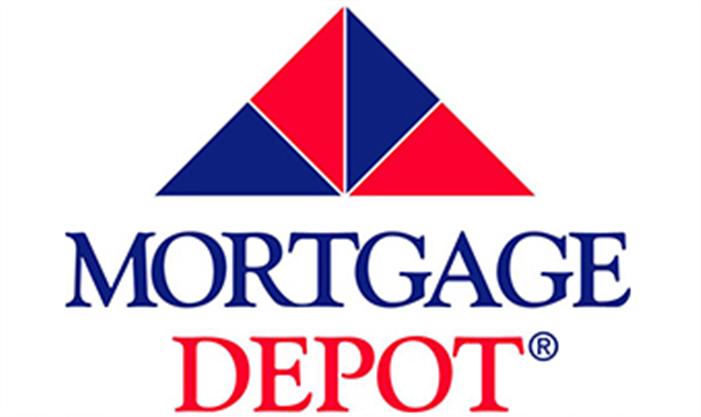AGENT LICENSE ID
131247

Brenda Joynson
Mortgage Consultant
Office:
Phone:
Email:
Address:
4462 West Saanich Rd, Victoria, British Columbia, V8Z 3E9
Why Falling Mortgage Rates Are a Boon For Real Estate
4/20/2023
Canadian home prices tripped up in 2022, with median values diving over 25% in some regions.
Avid real estate watchers, at least those who paid attention to soaring inflation and listened to the Bank of Canada, sensed this was coming.
They knew that our central bank would jam rates higher and that home prices had over-inflated. And they knew these two things were a dangerous combination.
So, not surprisingly, many sellers sold, and many would-be buyers took to the sidelines. That created a vacuum whereby home values slid the most on record.
But that was then...
As this is being written, the bond market forecasts multiple Bank of Canada rate cuts in the next 12 months. From a pure valuation perspective, that's the best news Canada's housing market has got in more than a year.
Falling rates are like Miracle-Gro for real estate. Statistically, there's a 70% correlation between Canada's national average home price and prime rate since 1980.
The reasons for this strong relationship are mainly threefold.
Falling/lower rates:
(1) help more people get approved for bigger mortgages
(2) help borrowers afford their mortgages, and
(3) brighten the outlook for buyers.
Here's a quick look at each of these catalysts.
Lenders use the government's mandated stress test rate to calculate your theoretical mortgage payments. Lenders then determine the proportion of your income required to cover those payments plus all your other monthly obligations.
The lower the interest rate, the lower your payment and the less income you need to qualify for a mortgage. A household earning $100,000 and making a $40,000 down payment can afford a roughly 7% ($35,000) more expensive home with a 5.25% mortgage rate than a 6.25% rate. That one percentage point drop in rate makes a meaningful difference in borrowing power.
Even folks who qualify to carry significant mortgage payments don't want them. Who does? Heavy payment obligations eat into discretionary income, often creating stress and less quality of life. People feel much better about homebuying when mortgage payments consume smaller portions of their income.
Lower rates also allocate more of each mortgage payment to the principal. Once rates drop to 3.10% or less, for example, you pay more principal than interest over a standard 5-year term with a 25-year amortization. The faster folks chip away at their balance, the quicker they build home equity and the more appealing real estate becomes.
Why? Because falling rates are economic stimulus. A strengthening economy boosts employment and incomes. That, in turn, encourages more people to buy homes, creating greater competition for available properties. That extra demand causes people to pay more and take inventory off the market, supporting home values.
Much of this extra demand comes from investors. As risk-takers, they try to snap up deals early. They anticipate that falling rates will lead to a market upturn.
In low-interest-rate environments, investors also turn to real estate for higher returns than other forms of fixed income, like bonds or income funds.
That first factor is crucial because Canada's housing market is built mainly on leverage. No less than 69% of home buyers "paid the maximum price they could afford" last year, according to CMHC's latest survey of mortgage consumers. The more people can afford, the more they borrow and put into real estate.
As long as the housing supply doesn't explode—which seems unlikely—sliding rates will give the next bull market legs.
They knew that our central bank would jam rates higher and that home prices had over-inflated. And they knew these two things were a dangerous combination.
So, not surprisingly, many sellers sold, and many would-be buyers took to the sidelines. That created a vacuum whereby home values slid the most on record.
But that was then...
Lower rates bring bull markets
As this is being written, the bond market forecasts multiple Bank of Canada rate cuts in the next 12 months. From a pure valuation perspective, that's the best news Canada's housing market has got in more than a year.
Falling rates are like Miracle-Gro for real estate. Statistically, there's a 70% correlation between Canada's national average home price and prime rate since 1980.
The reasons for this strong relationship are mainly threefold.
Falling/lower rates:
(1) help more people get approved for bigger mortgages
(2) help borrowers afford their mortgages, and
(3) brighten the outlook for buyers.
Here's a quick look at each of these catalysts.
1. Easier approvals
Most mainstream lenders require you to prove you can afford a higher interest rate than the one you're applying for. They call it "stress testing." This process prepares you for potentially higher rates and protects the lender from over-indebted borrowers.Lenders use the government's mandated stress test rate to calculate your theoretical mortgage payments. Lenders then determine the proportion of your income required to cover those payments plus all your other monthly obligations.
The lower the interest rate, the lower your payment and the less income you need to qualify for a mortgage. A household earning $100,000 and making a $40,000 down payment can afford a roughly 7% ($35,000) more expensive home with a 5.25% mortgage rate than a 6.25% rate. That one percentage point drop in rate makes a meaningful difference in borrowing power.
2. Easier debt servicing
Qualifying for a mortgage is one thing; making the payments every month is quite another.Even folks who qualify to carry significant mortgage payments don't want them. Who does? Heavy payment obligations eat into discretionary income, often creating stress and less quality of life. People feel much better about homebuying when mortgage payments consume smaller portions of their income.
Lower rates also allocate more of each mortgage payment to the principal. Once rates drop to 3.10% or less, for example, you pay more principal than interest over a standard 5-year term with a 25-year amortization. The faster folks chip away at their balance, the quicker they build home equity and the more appealing real estate becomes.
3. Healthier market sentiment
Lower mortgage rates create positive consumer psychology. People expect falling rates to invigorate the economy, which helps real estate do better.Why? Because falling rates are economic stimulus. A strengthening economy boosts employment and incomes. That, in turn, encourages more people to buy homes, creating greater competition for available properties. That extra demand causes people to pay more and take inventory off the market, supporting home values.
Much of this extra demand comes from investors. As risk-takers, they try to snap up deals early. They anticipate that falling rates will lead to a market upturn.
In low-interest-rate environments, investors also turn to real estate for higher returns than other forms of fixed income, like bonds or income funds.
Falling rates = market liftoff (generally speaking)
Easier approvals, more manageable mortgage payments and positive consumer sentiment are three key reasons why—other things equal—home prices climb when rates drop.That first factor is crucial because Canada's housing market is built mainly on leverage. No less than 69% of home buyers "paid the maximum price they could afford" last year, according to CMHC's latest survey of mortgage consumers. The more people can afford, the more they borrow and put into real estate.
As long as the housing supply doesn't explode—which seems unlikely—sliding rates will give the next bull market legs.




























